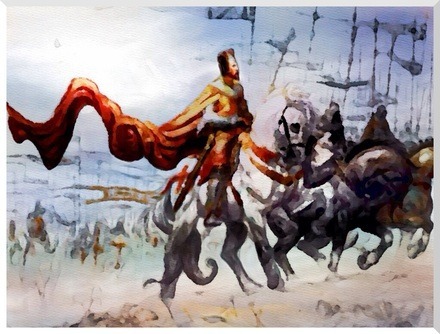What do you think?
Rate this book


685 pages, Hardcover
First published March 4, 2014

“The stone walls of the chapel had been recently whitewashed and in the soft candlelight, they glowed like polished ivory. During the daylight hours, the sun turned the stained-glass windowpanes into resplendent jewels; now they gave off a muted shimmer, an occasional flicker of emerald or ruby or royal purple. The scent of incense hung in the air; Eleanor found it a comforting aroma, reminding her of the rich spices of Sicily and Poitou.” (p.121)
“By now the sky was darker than midnight, stars glimmering like distant campfires in an alien world. Eleanor gazed up at those pinpoint white lights, hoping that her son was able to look upon them, too, on this tranquil spring evening. When she thought of his time at Trifels, shut away from the sun and sky and untainted air, she felt a tightness in her chest, a heaviness that would be with her until the day he regained his freedom. And if he did not . . . ?” (p. 234)
“the men were telling Will about the latest offer by the French king— that disputes be settled by a contest of champions, five on each side. But after Richard insisted that he and Philippe be two of the champions, the French lost all interest in the idea.” (p. 436)
